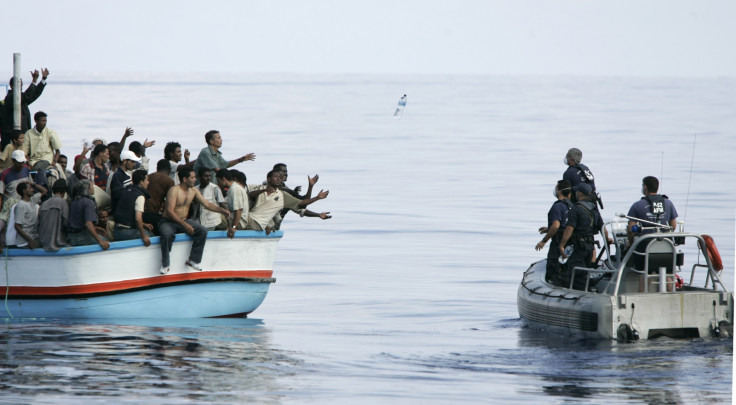EU to triple funding for 'Operation Triton' to tackle Mediterranean migrant crisis

European Union leaders have agreed to triple the funding to prevent drowning of immigrants in the Mediterranean.
Following five-hour talks on Thursday, 23 April, the EU made a commitment to deploy more helicopters, ships and other resources as part of search and rescue operations.
The development has come in the wake of the Mediterranean tragedy which killed more than 750 people when they attempted to travel to Europe from Libya desperately seeking better living conditions.
After the emergency meeting in Brussels, German Chancellor Angela Merkel told a press conference: "We want to move quickly. So we will triple the financial resources for the relevant missions of [EU border agency] Frontex, clearly improve them."
"For Germany I can add: if it turns out that the funds are not sufficient we will have to talk about it again. Money should be no object here."
"Operation Triton" has a monthly budget of €2.9m (£2.08m) with about seven vessels off the Italian coast. The latest boost in funding will funnel about €120m, bringing it up to the level of the Italian-led operation, which was cancelled six months ago.
Critics, mainly Britain and Germany, of the Italian-run operation, said it was attracting more immigrants as the chances of being rescued increase.
The UK has now agreed to send the helicopter carrier HMS Bulwark, two naval patrol boats and three helicopters for the mission.
"We felt that doubling it [the budget] wasn't really that credible, so we wanted to bring it up to the same level as we had for Mare Nostrum," said European Commission President Jean-Claude Juncker.
The goal of Italy's Mare Nostrum was primarily search and rescue measures while Triton's mandate is to protect the borders.
"The possible change of mandate means months and months of procedures and we have to act and to react immediately," said European Council President Donald Tusk.
The EU bloc has also indicated that it would look into the possibility of destroying vessels that could be potentially used by human traffickers.
The numbers of people who are trying to reach European nations from the conflict-stricken countries in Africa and Middle East have reached record levels in recent months.
At least 1,750 people have died during the perilous journeys while more than 35,000 from Africa have reached European shores so far this year.
© Copyright IBTimes 2025. All rights reserved.






















